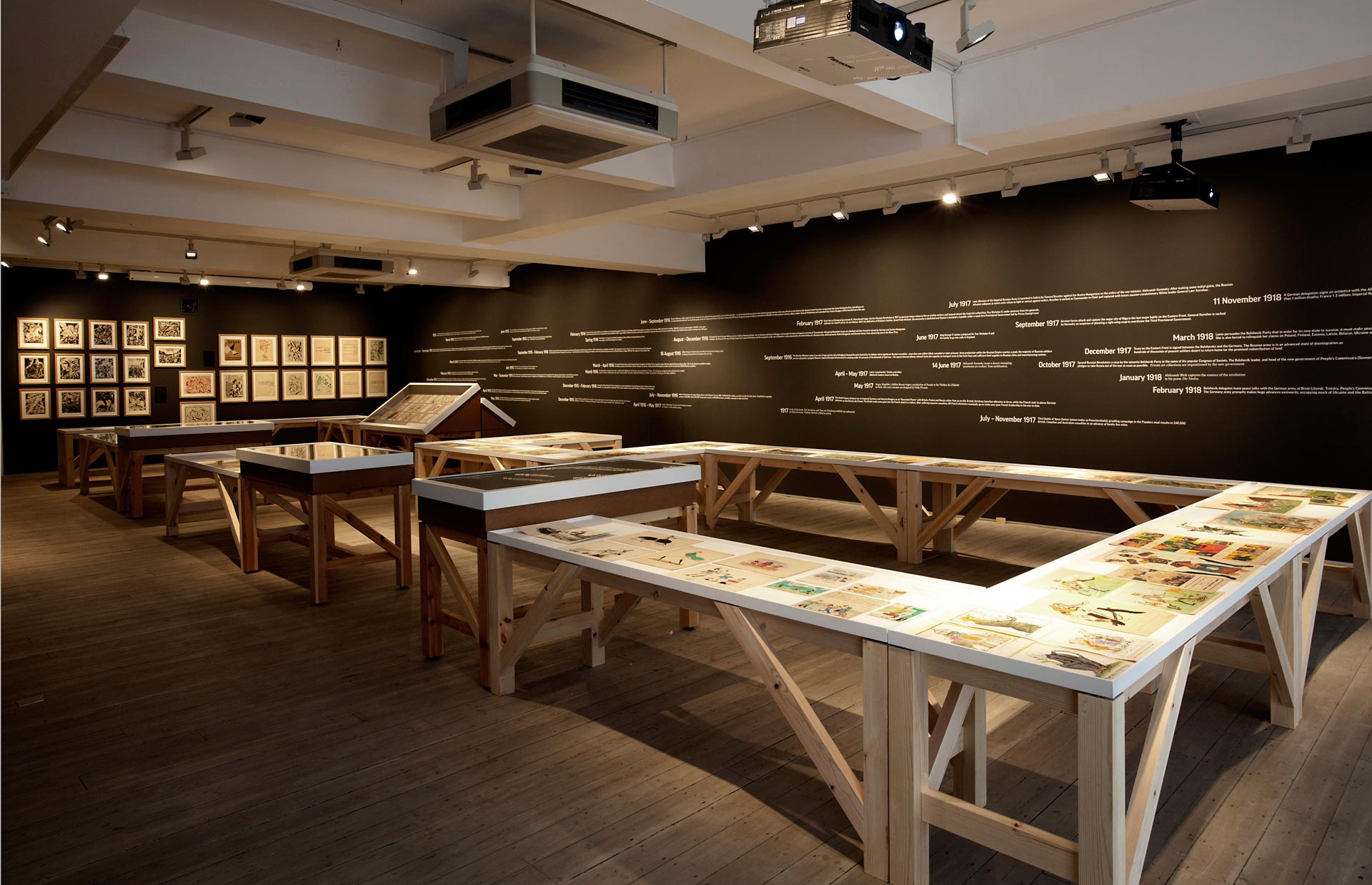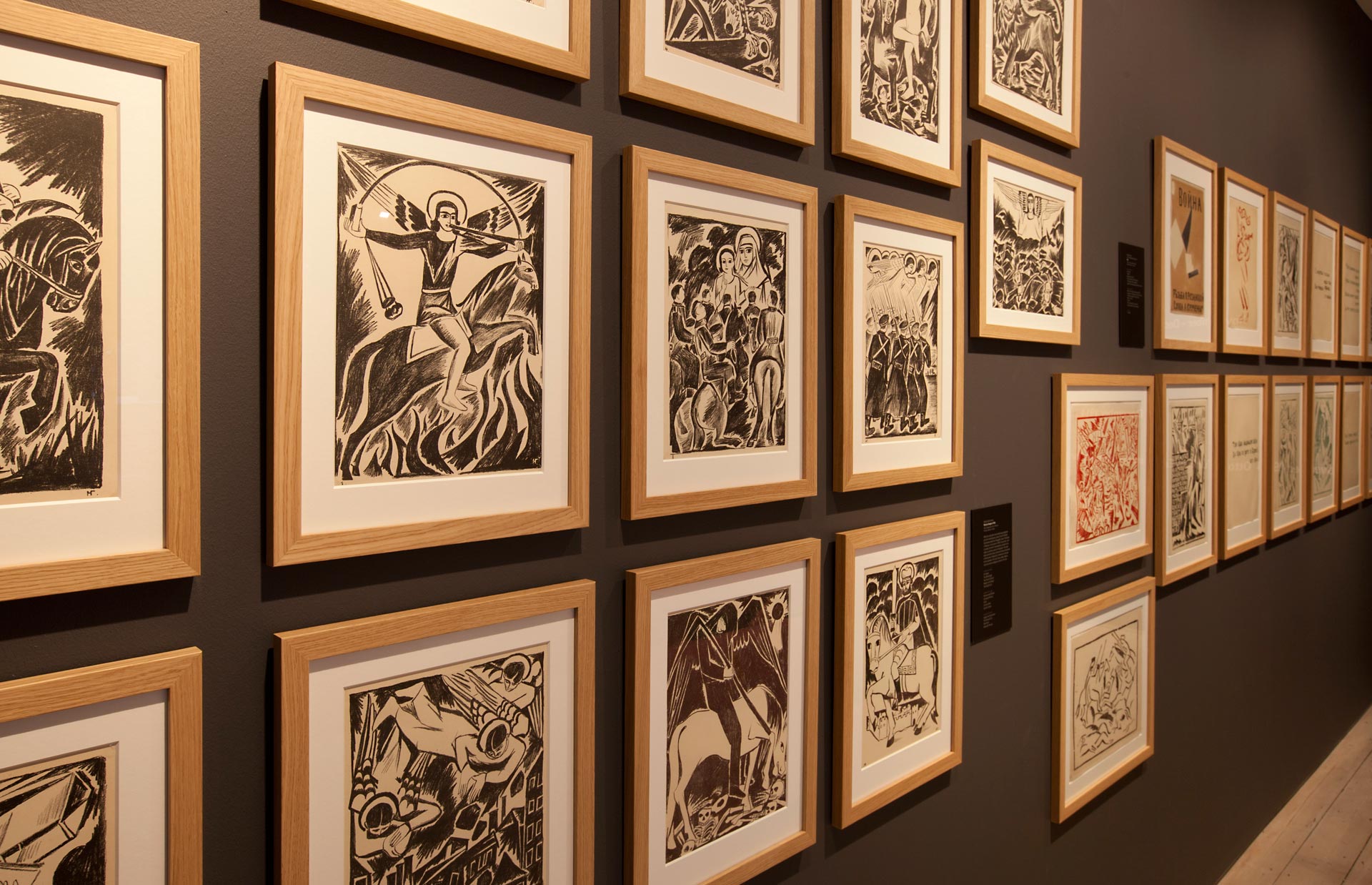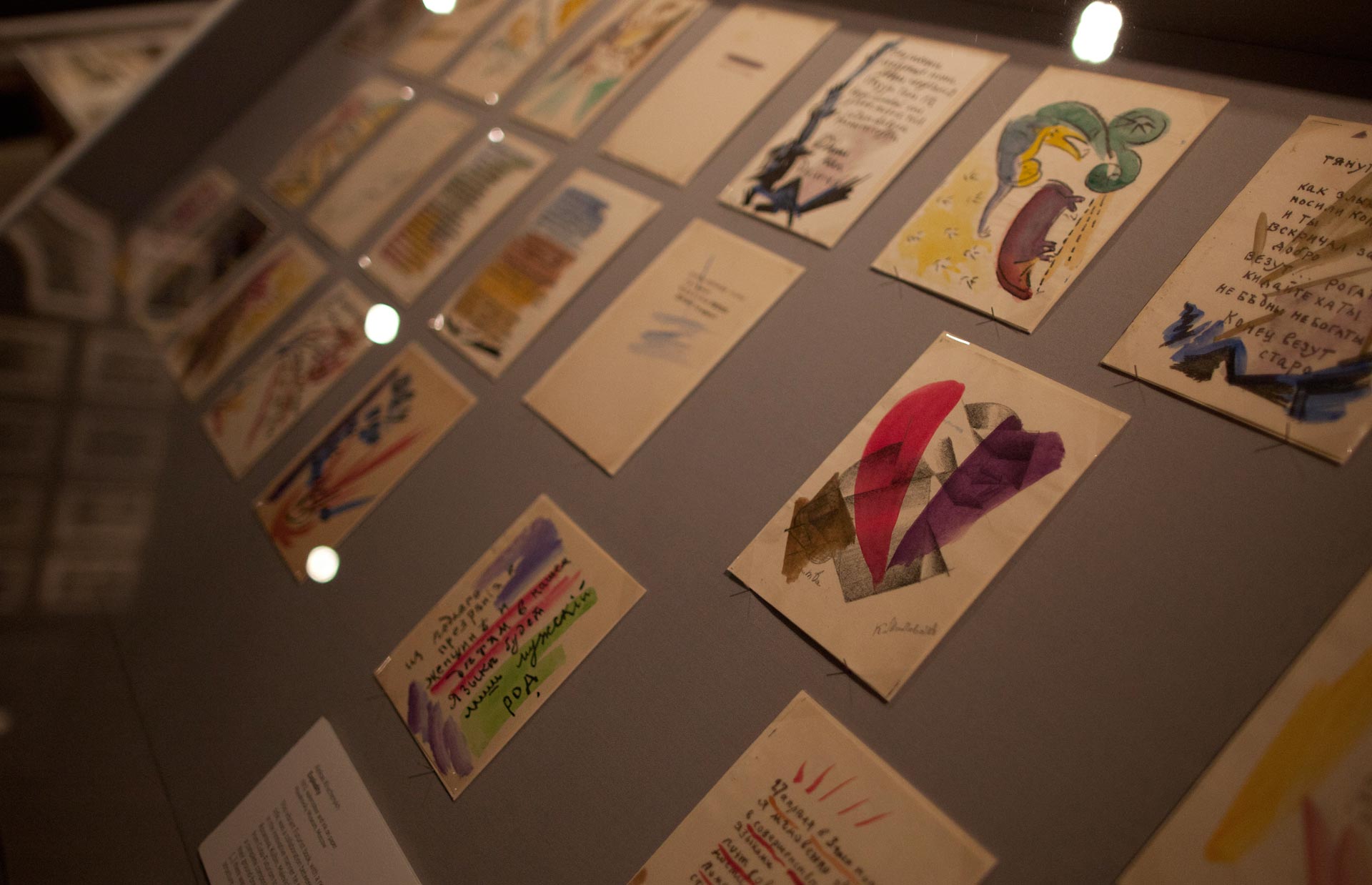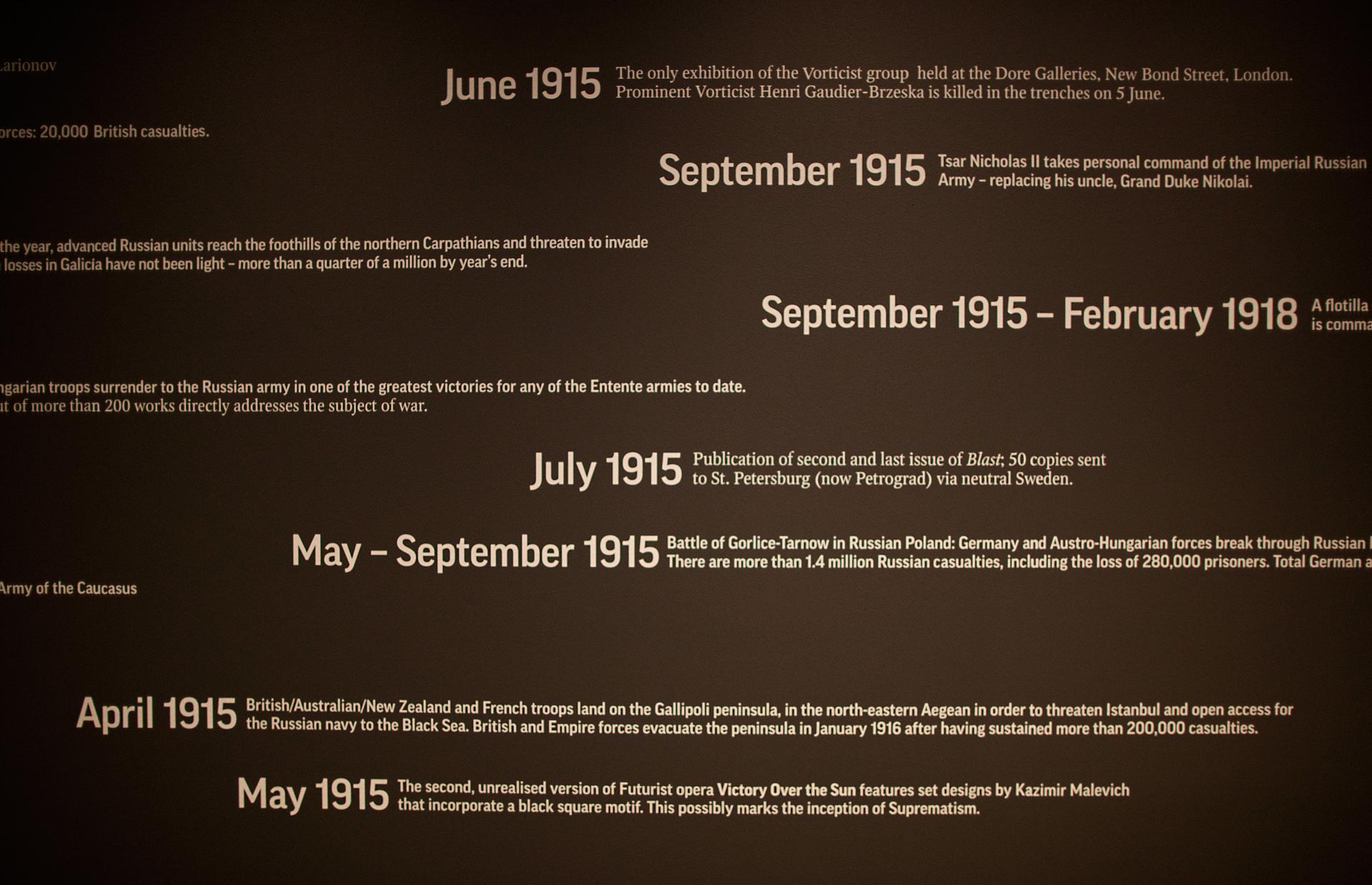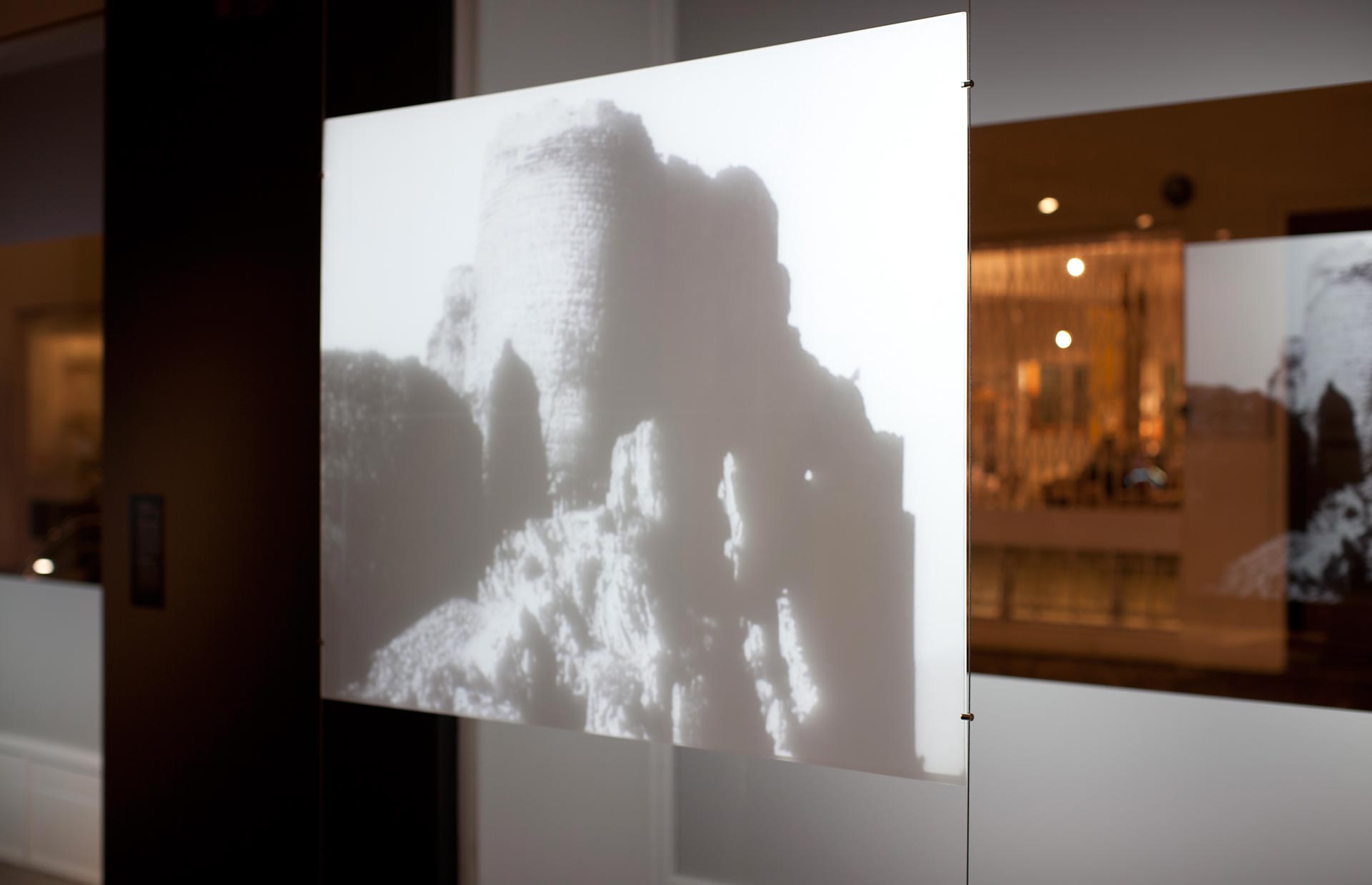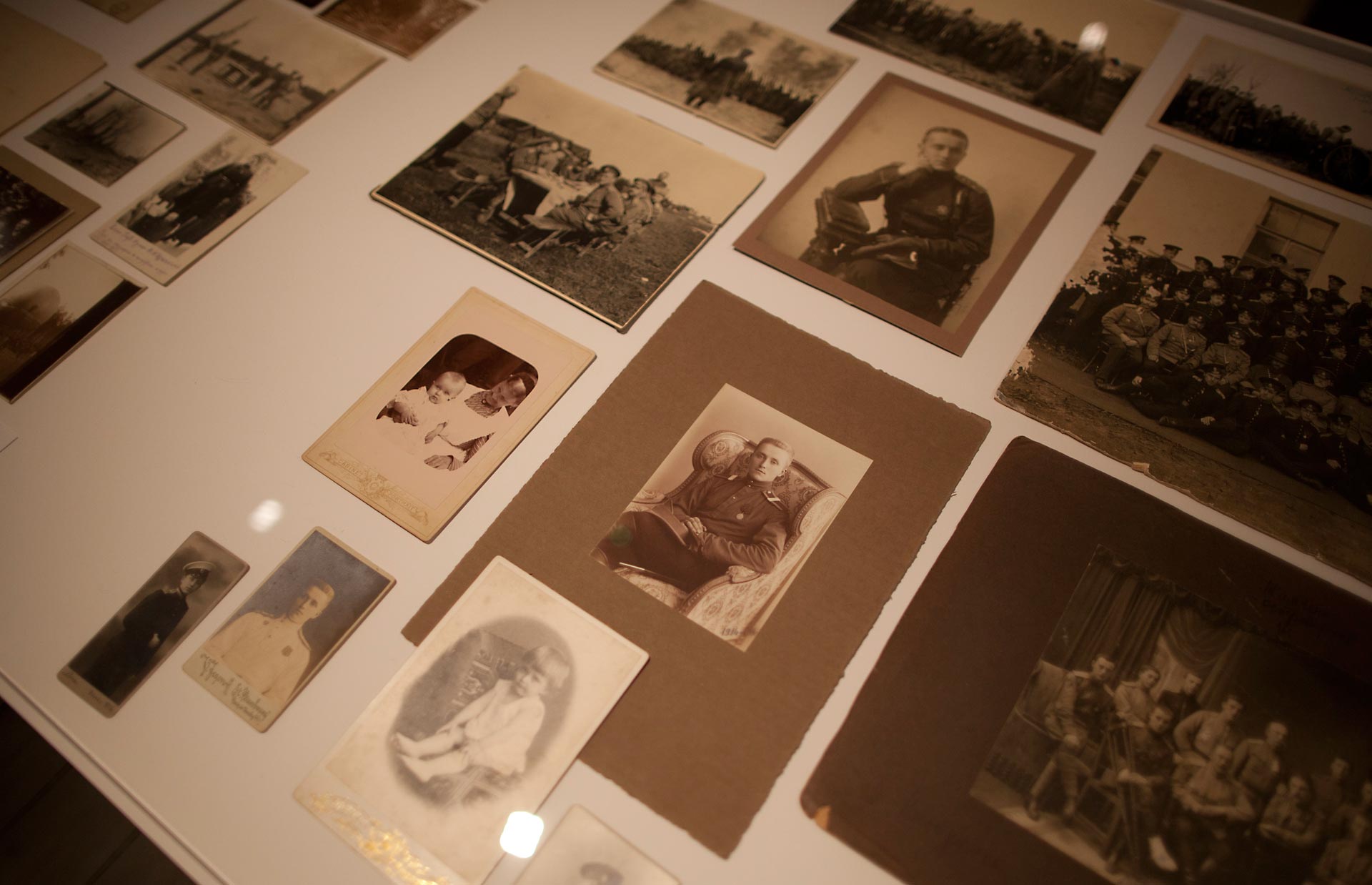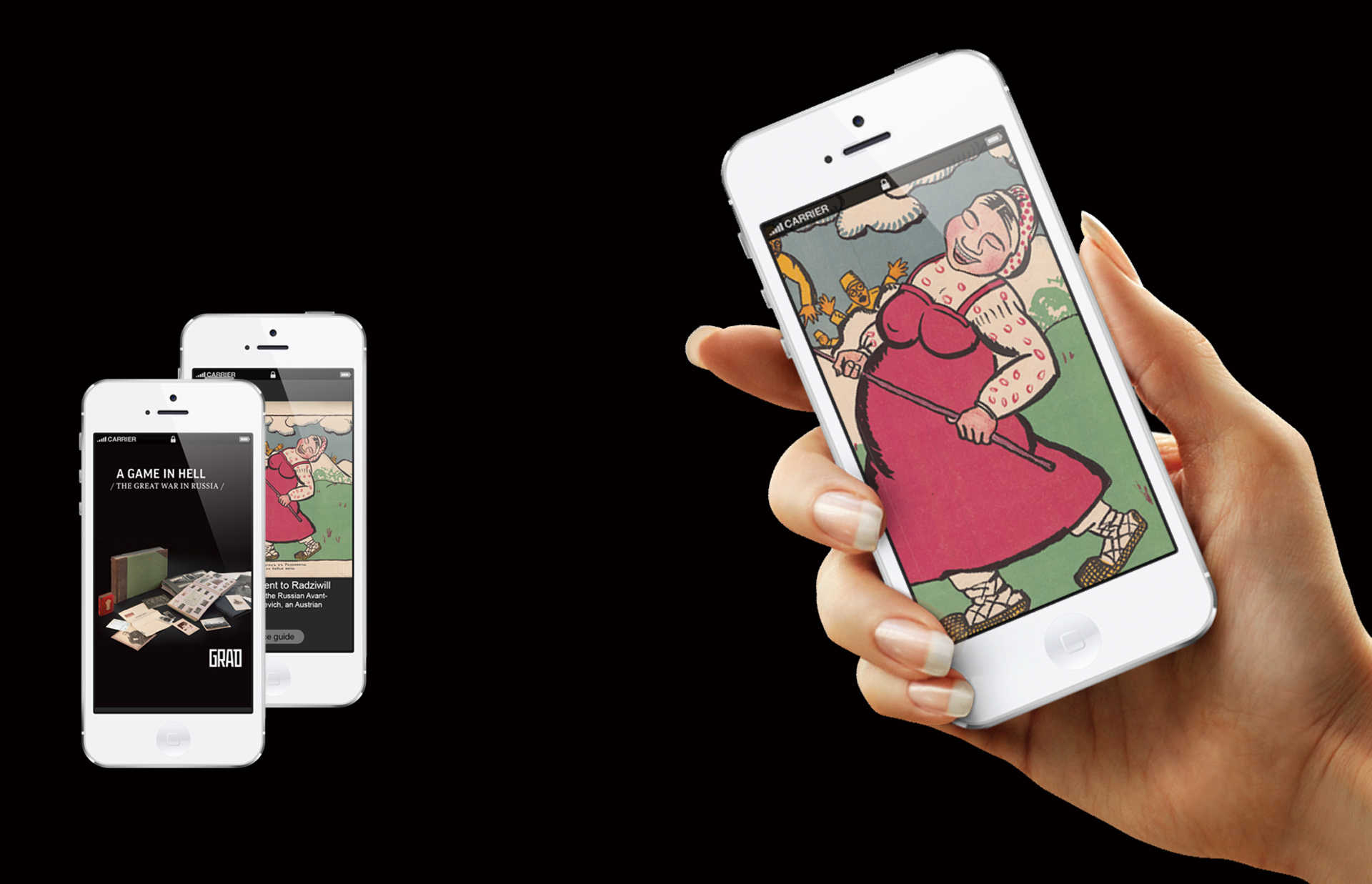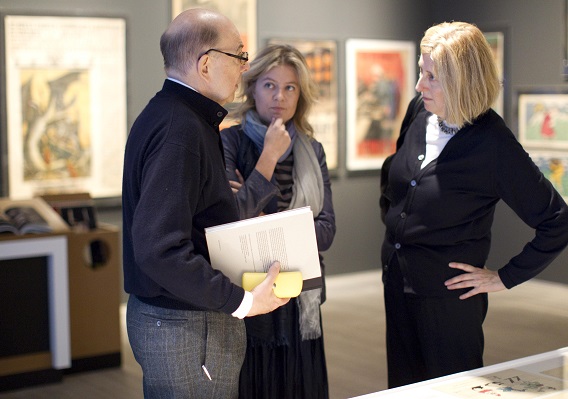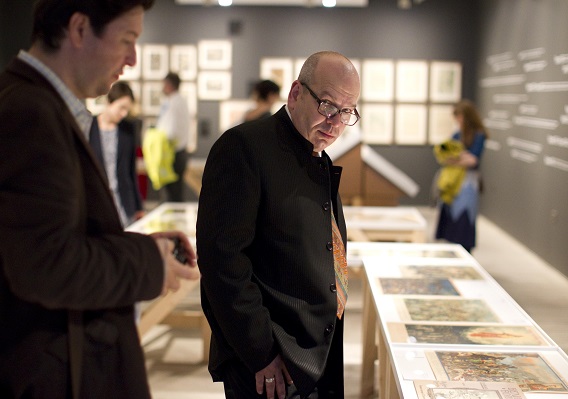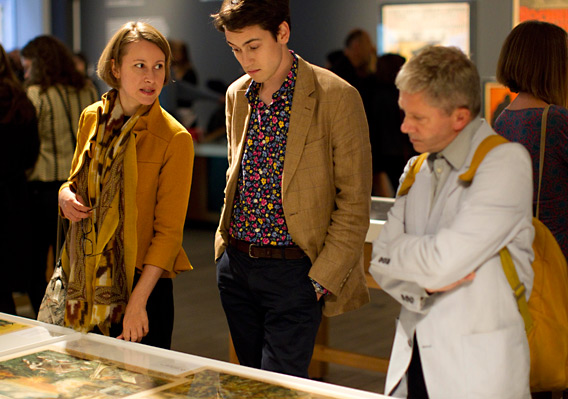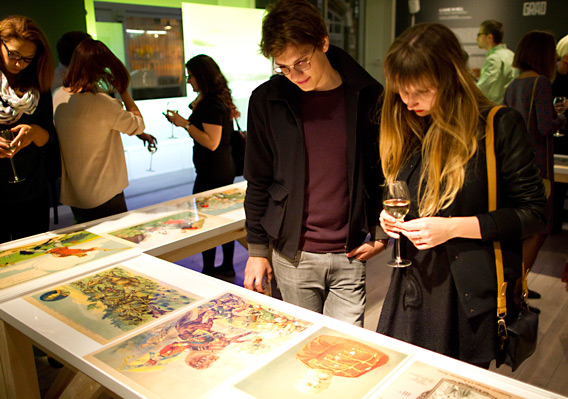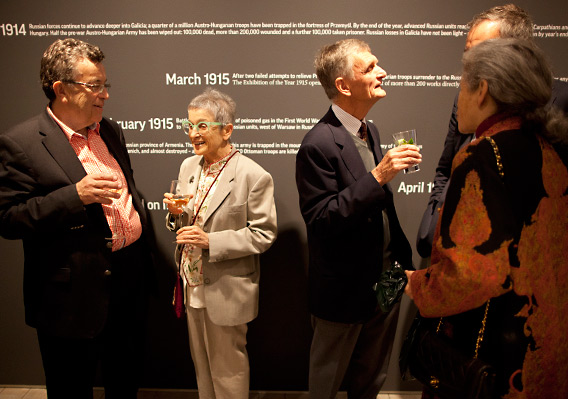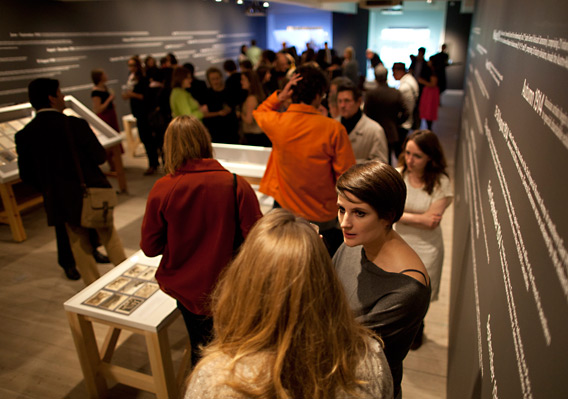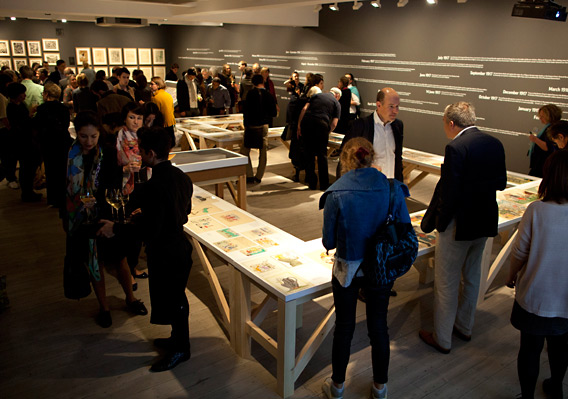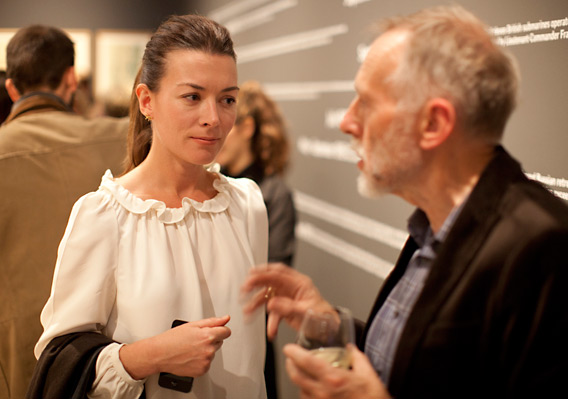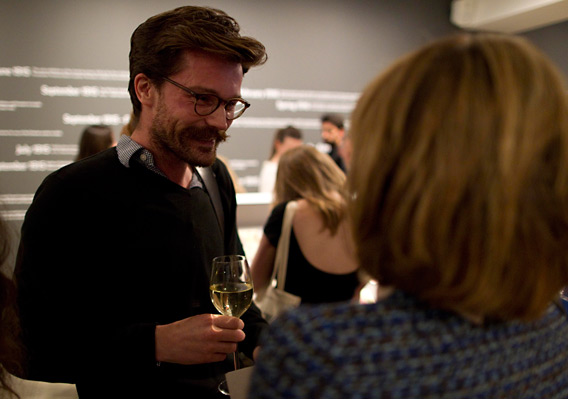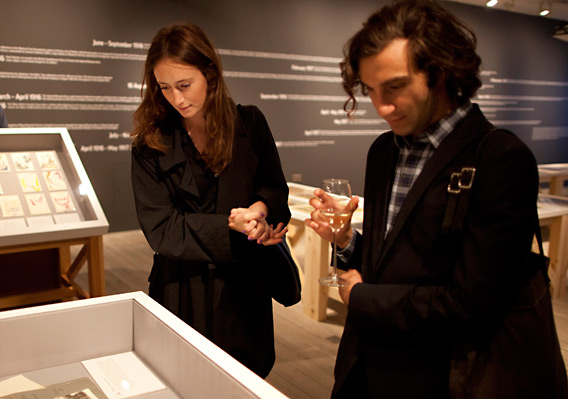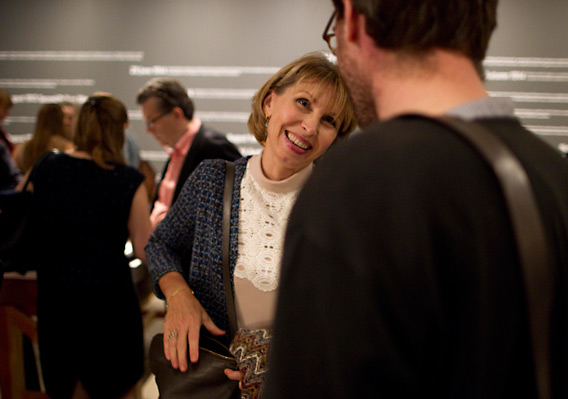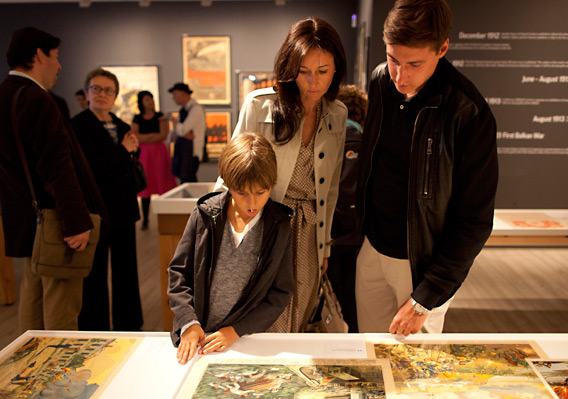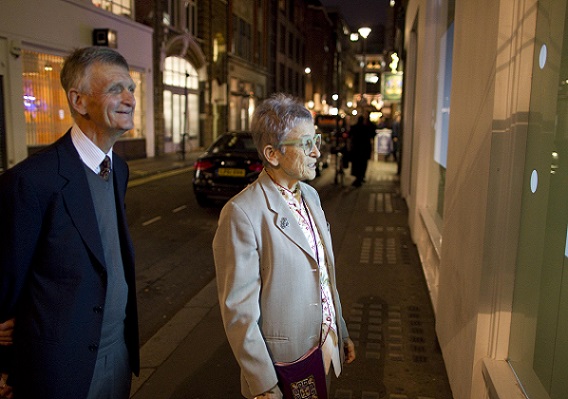A Game in Hell. The Great War in Russia
26 September — 26 November 2014
£5 entry charge; concessions available
Curated by Prof John Bowlt and Dr Nicoletta Misler
Exhibition design by Calum Storrie and Katya Sivers
Photographs by Tim Roberts
A Game in Hell. The Great War in Russia examines the artistic and historical significance of the First World War in Russia. So rapidly was the First World War succeeded by the 1917 Revolution and the Russian Civil War that there was little time to process its impact during the changing regimes that followed. In collaboration with the Russian State Library and an important private collection, GRAD brings together a rich variety of contemporaneous materials, many of which are on display for the first time in a public context, to examine public, personal and artistic responses to the war. Exhibits include Natalia Goncharova’s woodcut portfolio ‘Mystical Images of War’ and handmade Futurist books, as well as propaganda lubki by Vladimir Mayakovsky and Kazimir Malevich and photographs of the conflict.
Many of the items on display at GRAD are part of the exceptional collection of Sergey Shestakov, which averages in total around 500 printed items, periodicals and graphic designs and over 2000 photographs. The collection is particularly important due to the dearth of materials relating to the First World War in Russian museums, which they were instructed to disregard during the Soviet period. Shestakov’s collection brings to lightthe personal stories of Russians affected by the War, unveiling a plurality of perspectives. Satirical prints, cartoons and illustrated periodicals show the changing attitudes of the public and the media to the unfolding conflict. Unique photograph albums, which have never before been exhibited, depict the daily routines of front line military service and illustrate the stories and exploits of an entire air force battalion.
The exhibition also examines the birth of Russia’s artistic avant-garde, whose members were influenced by the stylised aesthetics of popular prints and the naïve style of children’s drawings. Hand-crafted Futurist books by artists such as Olga Rozanova, Aleksei Kruchenykh, Velimir Khlebnikov and Pavel Filonov combine poetry with collage and various printing techniques. Examples of these books included in the exhibition are ‘A Game in Hell’, ‘War’ and ‘World Backwards’: today considered masterworks of the period, these books are rarely on display due to the delicate nature of their materials.
This year’s centennial commemoration provides an opportunity to examine the First World War from new perspectives, and GRAD’s exhibition makes a significant and enlightening contribution. Through careful curation of these rare and revealing objects, GRAD unearths the remarkable personal stories of those living in the wartime period in Russia, and the impact of the war on so many different individuals’ lives. This is the first time such an exhibition has been attempted outside Russia.

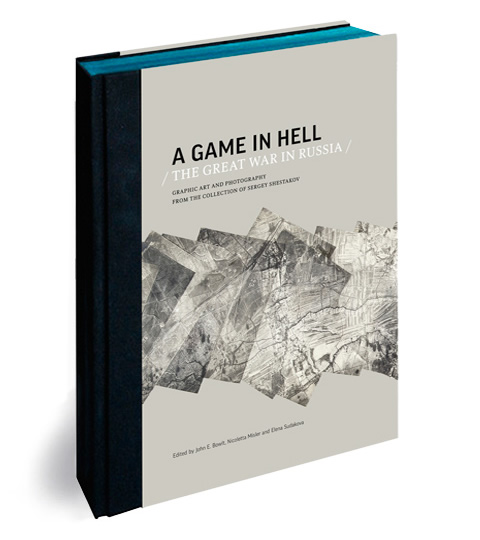
|
‘A Game in Hell. The Great War in Russia’Edited by John E. Bowlt, Nicoletta Misler and Elena Sudakova
Published to accompany the exhibition ‘A Game in Hell. The Great War in Russia’ (26 September – 27 November 2014)
This bi-lingual publication presents a remarkable display of documentary and artistic materials dating from Russia’s engagement on the Eastern and Southern Fronts. The title references a volume of Futurist poetry and thus identifies the book strongly with modernist artistic trends in Russia. The objects illustrated and discussed nevertheless range from lubki and satirical prints to posters, personal photograph albums and books by avant-garde artists and writers, and thus relate to the broad currents in art and society converging on this unprecedented crisis for Russia and her allies. Book Contents: ‘Foreword. A Nation Should Know its Heroes’ by Sergey Shestakov ‘The War that Ushered in a New Era’ by Sergey Volkov ‘Playing with Fire’ by John E. Bowlt and Nicoletta Misler ‘Russian Popular Prints, Political Cartoons and Posters from the First World War in the Shestakov Collection’ by Lyubov Rodionova ‘Kazimir Malevich and the First World War’ by Christina Lodder ‘Photographs of the Great War from the Shestakov Collection: Documenting an Era’ by Sergey Volkov ‘Russian Amazonki and the First World War’ by Natalia Budanova ‘Posters of the Great War’ Chronology by Jonathan Black and Ellen Pavey Full text in Russian If you would like to purchase this publication please contact GRAD |
A GAME IN HELL. THE GREAT WAR IN RUSSIA EVENTS
In our accompanying events programme, we examine wartime Russian visual culture through talks, workshops and a full-day conference.
The First World War on Film
26 November 2014
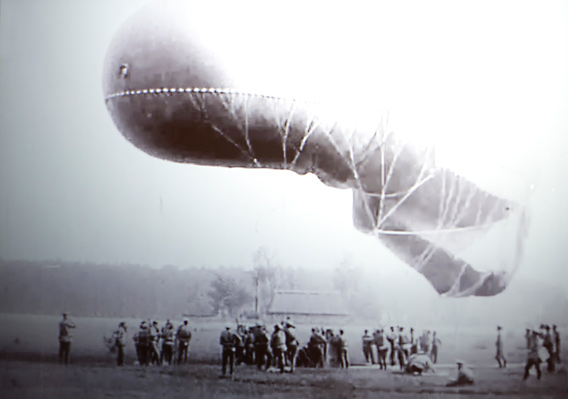
6.30pm – 8.00pm
Free with entrance to the exhibition (£5, £3 concessions)
Join us for an evening exploring how the First World War was depicted in Russia on film, in collaboration with the Kino Klassika Foundation. Justine Waddell will be in conversation with European and Russian cinema specialist Ian Christie. The discussion will be complemented by a selection of clips, from documentary to feature films and archival footage.
Ian Christie is a film historian, curator and broadcaster, and a trustee of Kino Klassika. He has been Anniversary Professor of Film and Media History at Birkbeck College, University of London, since 1999 and is a Fellow of the British Academy. Christie has written and edited books on early film, Powell and Pressburger, Russian cinema, Scorsese and Gilliam; and collaborated on a wide range of exhibitions at institutions such as the Hayward Gallery, Modern Art Oxford and V&A. His most recent books are on production design and on audiences. Earlier this year, he gave a talk on Eisenstein and the Great War in the BBC Radio 3 series Minds at War.
Justine Waddell is an actress, screenwriter and trustee of Kino Klassika. She is currently working on a screenplay adaptation of Virginia Woolf's early comic novel, Night & Day, and has played lead roles in feature films ranging from Tarsem Singh's The Fall to Alexander Zeldovich's 2011 Russian language re-imagining of Anna Karenina, Мишень (Target), with a screenplay co-written by Vladimir Sorokin.
Kino Klassika is a UK registered charity established to raise funds for the restoration and presentation of classic films of Russian language cinema.
Lubok Masterclass
12 November 2014
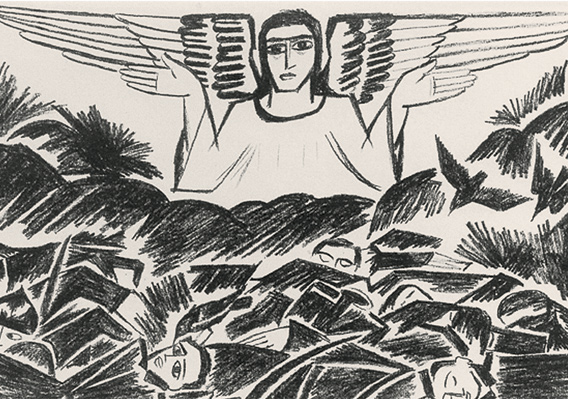
6.30pm – 8.00pm
Free with entrance to the exhibition (£5, £3 concessions)
Places are limited so contact GRAD or visit Eventbrite to book in advance.
Discover the historical and technical intricacies of the Russian popular print known as lubok with a talk from specialist Faith Wigzell and practical demonstrations from art historian and printmaker Helen Higgins. You will find out how this visual practice developed from the seventeenth century to its adoption by the Russian avant-garde. The accompanying demonstration will reveal the changes in technique, from woodcut and hand colouring to engraving and lino cut.
Faith Wigzell joined UCL’s School of Slavonic and East European Studies in 1966 and became Head of the Russian Department. She is currently Emeritus Professor of Russian Literature. Her numerous publications explore the rich history of Russian medieval culture, nineteenth-century literature, folklore and popular belief.
Helen Higgins is a printmaker, art historian and curator. Having worked at the Hayward Gallery, Tate Modern and Peggy Guggenheim Collection in Venice, Helen is now Gallery Educator at the Courtauld Gallery. Helen also holds an MA in Russian Art from The Courtauld Institute.
Exhibition tour
18 October 2014
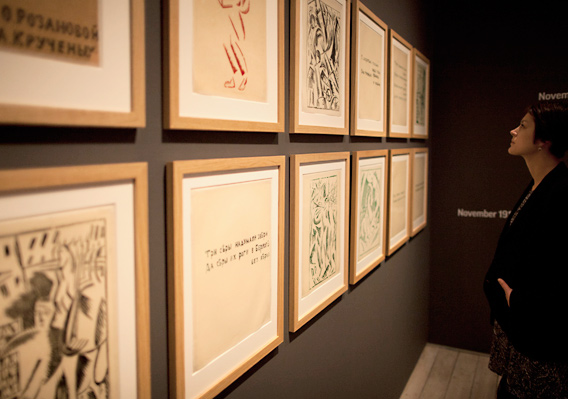
2.00pm - 3.00pm
Free with entrance to the exhibition (£5, £3 concessions)
Alexandra Chiriac and Ellie Pavey led a tour of the exhibition, discussing visual representations of the First World War in Russia.
CONFERENCE: A Game in Hell. The Great War in Russia
27 September 2014
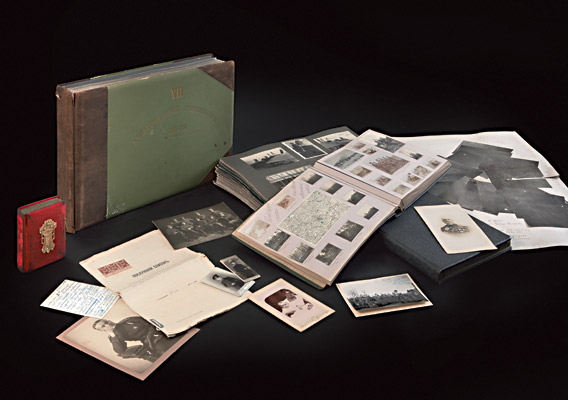
This full-day interdisciplinary conference coincided with the opening of the exhibition ‘A Game in Hell’: The Great War in Russia at GRAD: Gallery for Russian Arts and Design.
This year’s centennial commemoration is an opportune time to examine this long-neglected period of Russian modern history. Such was the rapidity with which the Great War was succeeded by the 1917 Revolution and the Russian Civil War that there was little time to process its impact during successive regimes. Speakers addressed the profound influence of the Great War on Russian society and culture from new perspectives, discussing topics that include the evaluation of military events on the Eastern Front; the response of avant-garde artists to the war; the role of women during the conflict; the changing uses of printed propaganda and photography; and the repercussions of wartime on Russian literary circles.
The conference was organised by GRAD (Alexandra Chiriac) and the Cambridge Courtauld Russian Art Centre (Natalia Budanova) in collaboration with The Courtauld Institute of Art (Professor John Milner).



